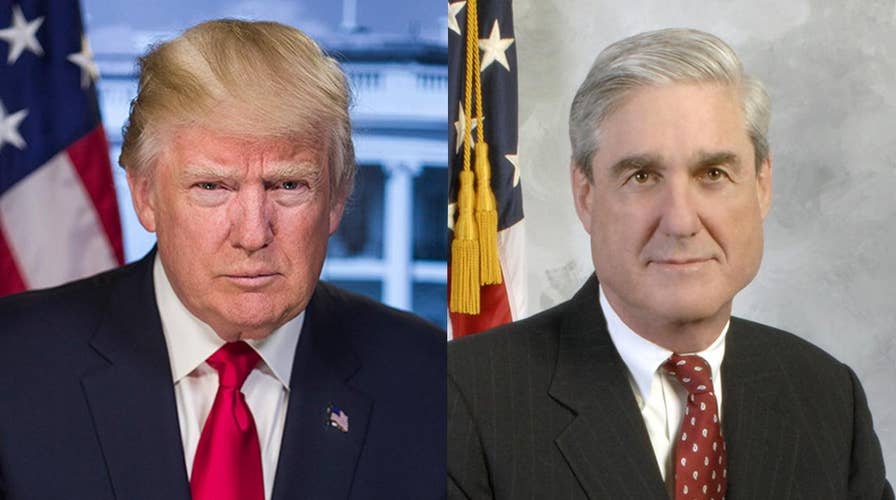Mueller’s Russia Investigators: Conflicts of interest?
Almost half of Special Counsel Robert Mueller’s team of lawyers investigating Russian meddling in the 2016 election have previously donated to Hillary Clinton which is giving the Trump administration reason to worry about bias
A bipartisan group of senators introduced a bill Thursday that would ensure a judicial check on the executive branch’s ability to remove a special counsel.
The Special Counsel Independence Protection Act (SCIPA) would require any action by the attorney general or acting attorney general to remove a special counsel from office to first be reviewed by a panel of federal judges.
The bill, introduced by Sens. Lindsay Graham, R-S.C., Cory Booker, D-N.J., and co-sponsored by Sens. Sheldon Whitehouse, D-R.I., and Richard Blumenthal, D-Conn., comes amid concerns that President Trump could issue a directive to oust Special Counsel Robert Mueller. Mueller is overseeing the investigation into Russian meddling and potential collusion with Trump campaign officials in the 2016 presidential election.
“Checks and balances have served the country well for the past two hundred years,” Graham said in a statement. “Our legislation would allow judicial review of the firing of any special counsel that was impaneled to look at the President or their team –regardless of party.”
Graham acknowledged that special counsels “must act within boundaries,” but said that they “must also be protected.”
Booker said that the bill would protect special counsels from any “intimidation” that would come from investigation revelations, and insure that any removal is for “legitimate reasons instead of political motivations.”
The bill also mandates that an attorney general could only remove a special counsel after petitioning to a federal court to establish that there was, or is, misconduct, dereliction of duty, incapacity, conflict of interest, or other good cause for removal.
Meanwhile, another bipartisan Senate duo are sponsoring a similar effort.
Sen. Thom Tillis, R-N.C., and Sen. Chris Coons, D-Del., sponsored legislation that would allow any special counsel for the Justice Department to challenge his or her removal in court, with a review by a three-judge panel within 14 days of the challenge. Their bill would be retroactive to May 17—the day Mueller was appointed by Deputy Attorney General Rod Rosenstein.
“A back-end judicial review process to prevent unmerited removals of special counsels not only helps to ensure their investigatory independence, but also reaffirms our nation’s system of checks and balances,” Tillis said in a statement.
SESSIONS' JOB SAFE, WHITE HOUSE OFFICIALS SAY, AS LAWMAKERS LOOK TO SHIELD MUELLER
President Trump, and some Republicans, such as Rep. Trent Franks of Arizona, who, earlier this week called for Mueller to step down due to his “ubiquitous conflicts,” have been critical of Mueller and his legal team.
The president has also publicly warned Mueller that he would be out of bounds if he dug into the Trump family’s finances.
Mueller and his team have also faced criticisms due to the fact attorneys brought on to the special counsel team have a history of political donations to both President Barack Obama and Hillary Clinton.
MUELLER PROBE: MEET THE LAWYERS WHO GAVE $$ TO HILLARY, NOW INVESTIGATING TEAM TRUMP
Rosenstein currently is charged with Mueller’s fate because Sessions recused himself from overseeing the Russia probe.
Fox News' Chad Pergram contributed to this report.













































